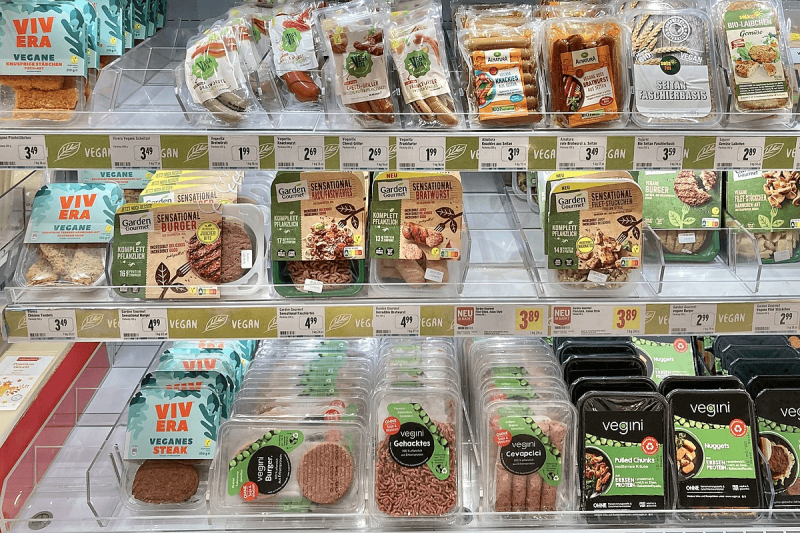Veganism has the potential to promote healthy eating as people ditch meat – but the rise of ultra-processed foods (UPFs) could hamper its positive effects.
Product launches for plant-based convenience foods tripled between 2013 and 2018. In the UK, half the population have added meat substitutes to their diets, while almost a third opt for alternative milks.
Many of these plant-based substitutes are classified as UPFs: foods that have undergone heavy processing to improve their perishability and taste. UPFs are often high in salt, sugar and saturated fat, with additional colourings, preservatives and additives.
Meat production’s devastating impact on the environment is well established, but UPFs bring their own costs.
“Ultra-processed food production relies on a relatively small number of commodity crops, like palm, soya, wheat and maize,” says Cliff. Mass production of these crops lends itself to monocultures, which contribute to deforestation, soil degradation and habitat loss.
The UPF industry could account for as much as 39 per cent of energy use, 45 per cent of biodiversity loss, and a third of greenhouse emissions related to diet, according to one recent study.































